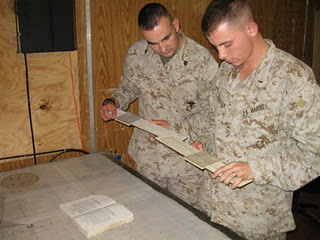So for the past few months I've been telling my kids that, every time they write $latex (x+y)^2 = x^2+y^2$, they kill a puppy. In fact, I will hereafter refer to that equation as the Dead Puppy Theorem, or DPT. Since its discovery in early September, my students' usage of the DPT has accounted for more canine deaths than heartworms.
Tag Archives: math
Paraskevidekatriaphilia
It's going to be a bit of a strange year for Friday the 13ths. First of all, there will be three of them. Now that's not especially weird--it happens every few years--but it's the first time since 1984 that they'll be spaced precisely 13 weeks apart. It's also the last time until 2040 that we'll have three of them in a leap year. I got all this information from a story on the USA Today website, which featured some words from one Dr. Tom Fernsler of the University of Delaware, a math professor (naturally) who's earned himself the nickname of "Dr. 13." An interesting tidbit from the good doctor, and bad news for the phobic: the 13th of the month is actually more likely to occur on a Friday than any other day of the week--688 times in a 400-year period.
Check, One, Two
I used to be an artillery officer in the Marine Corps, and it's sometimes fun to bring mathematical details of my former life into the classroom. Not only is there some useful and interesting math to be found there, but it also buys me the occasional attention of the Call of Duty crowd. Here is a simple application of Bayes' Theorem to artillery safety.
noe.2.thynges
Thanks to the book Group Theory in the Bedroom, by Brian Hayes, I finally found someone to blame for my geometry students' daily growing hatred of mathematical language. His name is Robert Recorde. For those of you who, like pre-this-week me, have never heard of Robert Recorde, don't worry: you've seen his handiwork. Recorde was a 16th-century Welsh doctor, mathematician, and author of Whetstone of Witte (1557), the book in which the modern equals sign first appears.
The Right Stuf(s)
In my last post we considered the question of whether Double Stuf Oreos actually live up to their name, creme-wise. Chris Danielson and I have been going back and forth over the use of nutritional info alone to justify crying foul against the National Biscuit Company. Enough of that. Let's do some science.
What's in a Stuf?
First, New Year's Resolution = more blog posts. In that spirit...
A few days ago, teacher of math teachers and all-around math dude Christopher Danielson posted an interesting argument with the conclusion that Double Stuf Oreos are not, in fact, stuffed double. I'll summarize it here.
Using the nutritional info on the packages, you can easily verify that one serving of originals (3 cookies) is 160 calories, and one serving of the Double Stuf variety (2 cookies) is 140 calories. If we let w be the number of calories in a wafer, and f be the number of calories in one stuf's worth of "creme" filling, you can set up the following system of equations:
$latex begin{cases} 6w + 3f =160 \ 4w+4f=140 end{cases}&s=2$

